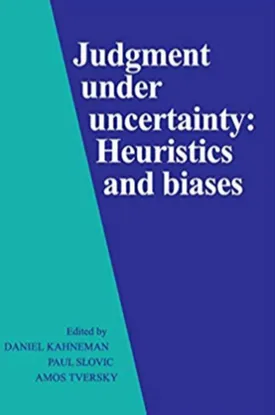Amos Tversky
Amos Tversky is an Israeli cognitive psychologist and a pioneering figure in the field of cognitive science. The contributions of Tversky to the field of cognitive psychology and decision-making have been immense, with his work and research having had a tremendous impact on the field today.
Born in 1937, in Haifa, Israel, Tversky grew up in Tel-Aviv, where his family was one of the first to settle. He studied mathematics, economics and psychology at the Hebrew University of Jerusalem, receiving his PhD in 1961. Soon after, Tversky began his career in academia teaching at the University of Michigan and Hebrew University of Jerusalem.
During his time at the University of Michigan, Tversky met and began to collaborate with the iconic American psychologist and Nobel Laureate, Daniel Kahneman. The two would eventually publish papers together, and it was during this collaboration that Tversky began to explore the possibilities of applying cognitive psychology to decision-making theory.
Tversky's work focused on exploring the ways in which people make decisions, and how these decisions can be improved. His research has made tremendous contributions to the field, including the development of the family of cognitive biases, called "heuristics", which are rules of thumb that govern our behavior and judgement. Tversky's heuristics encompass the idea that our decision-making processes are based on behavioral shortcuts such as stereotypes and categorization, which can lead to inaccurate decision-making.
Another groundbreaking contribution of Tversky's to the field of decision-making is Prospect Theory, which he co-developed with Kahneman. This theory explores the ways in which people perceive gains and losses, and how these perceptions affect decisions and risk taking. The theory states that people are more likely to be risk averse in the face of potential losses, and more likely to take risks in the face of potential gains.
Tversky's work has also had a profound influence on economics, anthropology and psychology. His work has challenged traditional economic models, arguing that human behavior cannot be simply boiled down to economic principles of rationality and self-interest, but instead is complex and subject to cognitive bias. Tversky's research has also provided insight into how groups interact, based on the notion that individuals within a group will be influenced by the behavior of others, most often taking on the attitude that is most prevalent.
Tversky died in 1996, but his influence on the field of cognitive psychology and decision-making theory continues to this day. His work has had a lasting impact on psychology, economics, and decision-making, and his research has provided a foundation upon which further research into these topics can build. Thus, his contribution to the fields of cognitive science and decision-making is immeasurable, and his name will be forever associated with the important contributions he made to the fields of psychology and decision-making.

